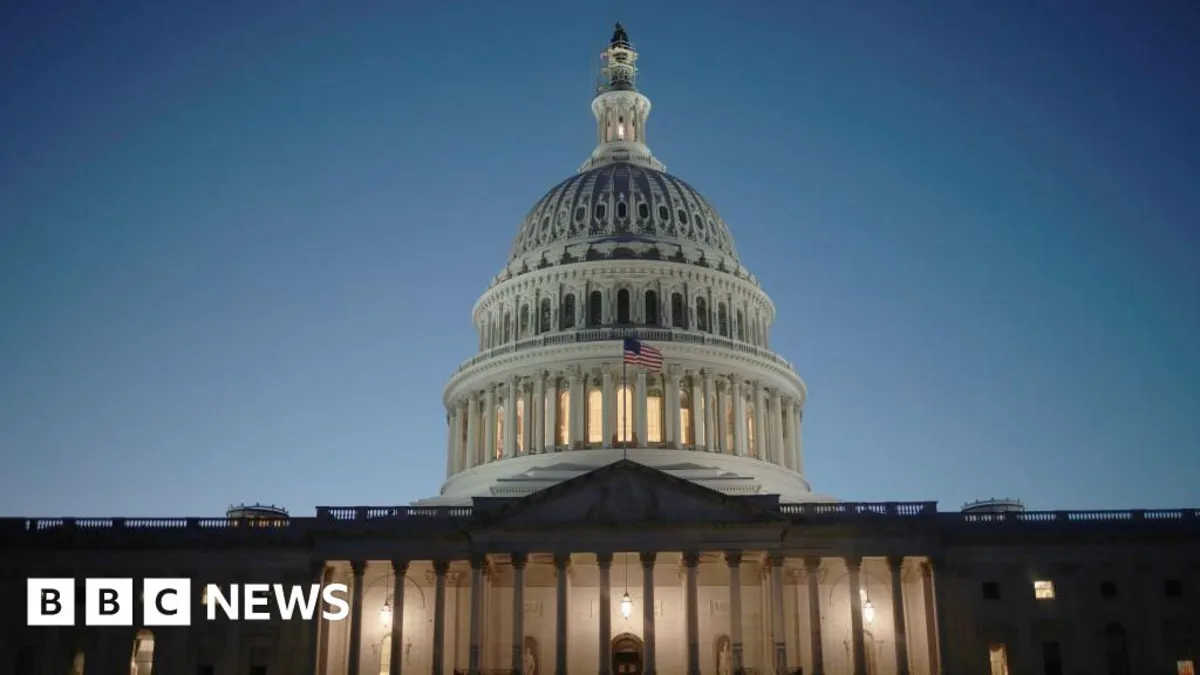
In a significant setback for former President Donald Trump, his fellow Republicans in the House of Representatives have failed to advance his ambitious and widely publicized tax reform package, referred to as the One Big Beautiful Bill Act. This 1,116-page bill, which aims to implement extensive tax breaks and spending cuts, fell short during a crucial vote in the House budget committee, marking a vivid illustration of the deep budgetary divisions within the Republican Party.
On social media, Trump expressed his frustration, urging Republicans to stop debating and take decisive action. However, dissenting voices within the party argued that the proposed tax cuts did not go far enough, ultimately leading to the bill's failure. In this article, we will explore the major points of contention among Republican lawmakers regarding this controversial tax bill.
One of the primary issues sparking disagreement among Republicans is the extent of cuts proposed in the budget bill. Several conservative lawmakers have called for more significant reductions to address the growing national debt, which currently stands at an alarming $36 trillion. The bill includes tax breaks totaling approximately $4.9 trillion, partially funded by cuts to Medicaid and green energy tax incentives established under the previous administration.
Four Republican lawmakers, in particular, have withheld their support, arguing that the cuts need to be more substantial to effectively manage the nation’s financial obligations. Texas Republican Chip Roy, one of the dissenters, stated, "This bill falls profoundly short," emphasizing that he would not support the measure unless serious reforms were made.
Among the most contentious aspects of the bill are the proposed cuts to Medicaid, a critical healthcare program for lower-income Americans. The legislation suggests implementing work requirements that would deny Medicaid coverage to able-bodied individuals who do not meet specific employment criteria. Under the current proposal, those requirements are set to begin in 2029, but conservative lawmakers like Roy are advocating for immediate implementation.
Opposition is also mounting from other Republicans, including Missouri Senator Josh Hawley, who warn that such cuts could severely impact millions of lower-income constituents. Hawley has publicly criticized the party's approach, stating, "That argument is both morally wrong and politically suicidal." This internal conflict highlights the struggle within the party regarding health care support for vulnerable populations.
Another contentious element of the bill is the proposed increase in the SALT (State and Local Tax) deduction cap from $10,000 to $30,000 for married couples. Lawmakers from high-tax states such as New York, California, and New Jersey have raised objections, claiming that this increase is insufficient to meet their needs. A group of New York Republican Congress members publicly criticized Speaker Mike Johnson's proposal, arguing that it was inadequate and could jeopardize the entire tax package.
Some members of the SALT Caucus, a bipartisan group advocating for tax relief, are calling for the cap to be raised to $62,000 for individuals and $124,000 for couples filing jointly. In response, House Republican leaders are seeking a compromise that would increase the cap to $40,000 for individuals and $80,000 for couples.
The legislation also proposes significant changes to the Supplemental Nutrition Assistance Program (SNAP), which supports over 42 million Americans with food assistance. The current proposal would require states to bear a portion of the costs associated with SNAP benefits, shifting financial responsibility from the federal government to state administrations. Additionally, Republicans aim to expand work requirements for SNAP recipients, raising the age limit for mandatory employment from 54 to 64.
Democratic National Committee Chair Ken Martin criticized these changes, calling them a "slap in the face" to millions who depend on the program for food security. Conversely, Republicans argue that these reforms would reduce government waste and encourage self-sufficiency among beneficiaries.
In summary, the failure of Trump's 'big, beautiful' tax bill underscores the significant divisions within the Republican Party regarding budgetary priorities. As lawmakers continue to grapple with these contentious issues, the future of this ambitious tax reform effort remains uncertain.